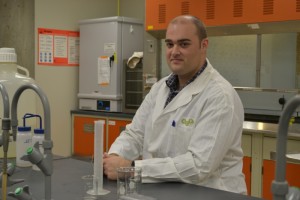There’s nothing quite like having a few drinks and talking about all the puzzling questions of the universe. That’s exactly the kind of thing the Camosun Science Club gets up to.
The club has been active for a year and has over 100 members. It’s run by first-year Applied Chemistry and Biotechnology student Zachary Snow and is open to anybody who has an interest in science; you don’t have to be a Camosun student to be a member of the science club.
“I’m keeping it open to allow anyone who is interested in science to join the science club,” says Snow. “It allows people who aren’t in the sciences to ask their critical questions.”

The science club has irregular meeting times, as a professor (who isn’t getting paid) and lab are required. The club also does pub nights and socials at McRae’s Bistro.
“I plan out the events with profs beforehand, go over practicing an experiment together, and move forward into the testing phase,” says Snow.
In the past, the science club has done labs where they made soap from essential oils, and they’ve also cloned plants. They’ve had professors lecture about subjects like Tesla coils; last year they had Bob McDonald from CBC’s Quirks & Quarks come to the school to do a presentation on science journalism and his TED talk, “What if everything you know is wrong?”
“This year, I’m looking at doing an infectious disease lecture and then doing a microbiology lecture, as the two go hand in hand,” says Snow.
As for the labs this year, if anyone is familiar with MiniMelts, there’s at least one lab that might be of interest.
“I’m planning on guiding the class to make liquid nitrogen ice cream,” says Snow.
The Camosun science club also goes on field trips; last year they went to Triumf, which is a nuclear physics facility in Vancouver. This trip has inspired Snow’s second lab idea for this year.
“We got to see a radiation detector that you can build with 99.9 percent isopropyl alcohol and dry ice,” says Snow. “It forms this gas layer where it detects the radiation from space.”
The Camosun Science Club can be found on Facebook; email scienceclub@camosunstudent.org for more info.
